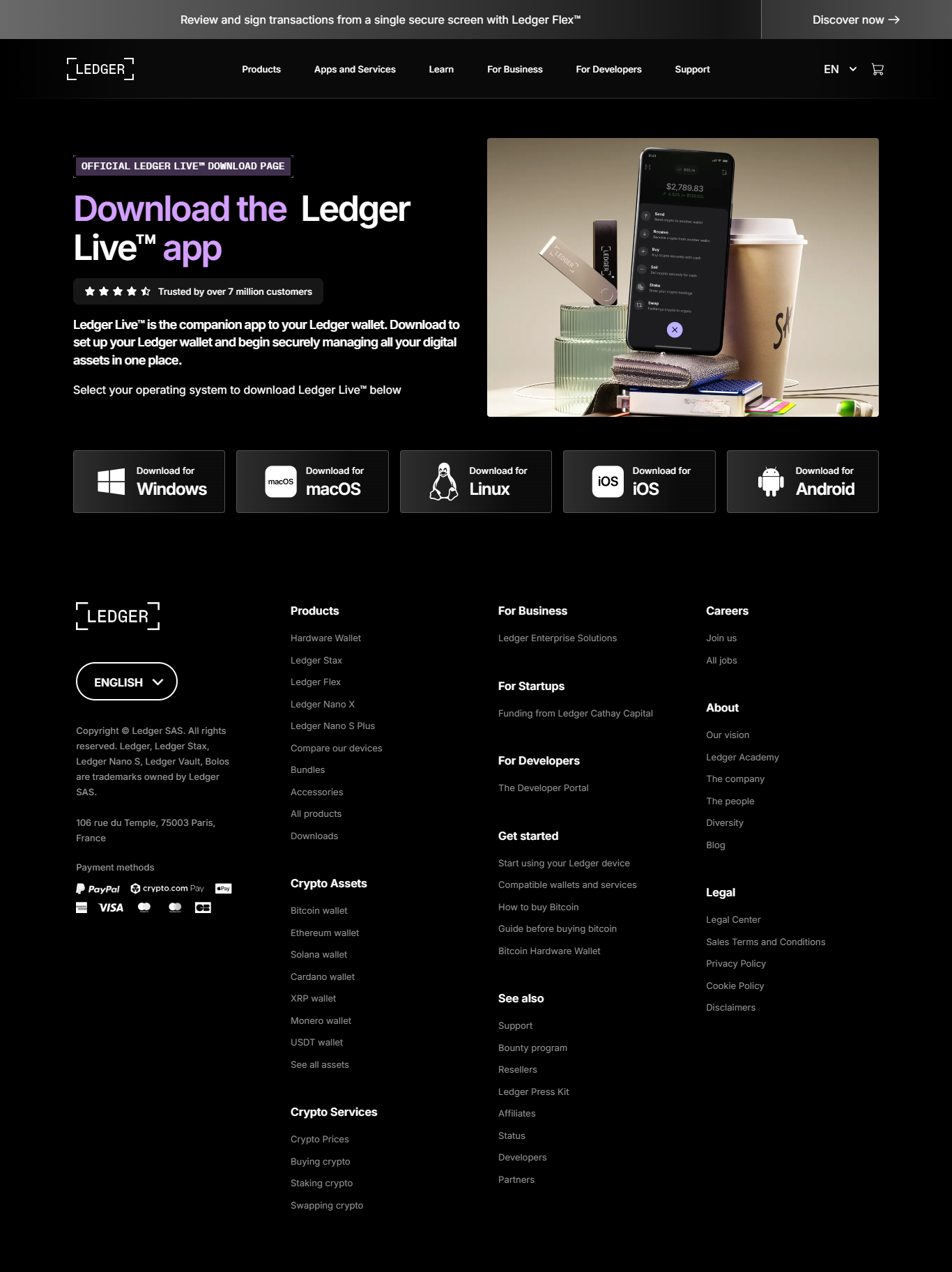
Ledger Login: The Complete Beginner-to-Pro Guide
Master secure crypto access, device interactions, and portfolio management with Ledger Login.
In the world of cryptocurrencies, few things matter more than security. As digital assets grow in popularity, so does the importance of keeping them protected from online threats. Ledger Login—the process of securely accessing your Ledger hardware wallet and Ledger Live interface—is a cornerstone of modern crypto safety. Whether you're a beginner learning how to store your first tokens or a seasoned crypto investor handling a diversified portfolio, understanding how Ledger Login works is essential for long-term protection.
Why Ledger Login Matters
Unlike online exchanges where private keys are stored on servers, Ledger devices operate using a “cold storage” philosophy. Your private keys never leave the hardware wallet, meaning even if someone gains unauthorized access to your computer, they cannot steal your crypto. However, security only works when the login process is done correctly. Ledger Login ensures:
- Direct verification through a hardware wallet
- Protected access to Ledger Live’s portfolio tools
- Secure signing of crypto transactions
- Prevention of phishing or malware-based attacks
Understanding How Ledger Login Works
Ledger Login is the point of connection between Ledger Live (the app) and your hardware device (Nano X, Nano S Plus, or Nano S). When you open the Ledger Live app, it doesn’t automatically assume you are the owner of the connected wallet. Instead, it waits for authentication—performed physically on the hardware device—to verify that you are the rightful user.
This separation of software and hardware is what makes Ledger one of the strongest crypto security systems available today. Ledger Live may show your balances and transactions, but the power to approve actions like sending coins or installing apps lies entirely with the hardware wallet.
🔐 Step-by-Step Guide: Signing Into Ledger Live
1. Open Ledger Live
Launch the Ledger Live app on your computer or mobile device. Make sure it’s the official app from Ledger.
2. Connect Your Ledger Device
Plug in your Ledger Nano X or Nano S Plus using a USB cable, or use Bluetooth if supported.
3. Enter Your PIN
Unlock your hardware wallet with your secure PIN. Never share this PIN with anyone.
4. Open the Crypto App
If you plan to send or receive specific assets, open the relevant app (e.g., Bitcoin, Ethereum) on the device.
5. Ledger Live Authenticates Automatically
Once the hardware is unlocked, Ledger Live completes login and syncs your accounts securely.
Common Ledger Login Issues & Troubleshooting
Even the most secure systems can experience hiccups. Here are common issues Ledger users face and how to fix them quickly.
❗ Device Not Detected
Make sure your cable supports data transfer and is not charging-only. Try switching USB ports or restarting Ledger Live.
❗ Wrong PIN or Too Many Attempts
Entering the wrong PIN multiple times will reset the device, requiring your 24-word recovery phrase. Store your phrase offline and never on a phone or computer.
❗ Ledger Live Not Syncing
Updating Ledger Live and firmware usually fixes sync delays. Always use official Ledger resources.
Ledger Login vs Exchange Login: A Clear Comparison
| Feature | Ledger Login | Exchange Login |
|---|---|---|
| Private keys stored? | On hardware only | On exchange servers |
| Security risk | Very low | Medium–high |
| Ownership | You control your crypto | Exchange controls keys |
| Access method | Physical hardware verification | Email/password |
💬 Quote Highlight
“Ledger Login isn’t just an authentication step — it’s a digital handshake that confirms ownership, enhances security, and ensures true self-custody.”
Frequently Asked Questions (FAQ)
👉 Is Ledger Login safe?
Yes. It uses offline verification via a hardware wallet, making it one of the safest login methods in crypto.
👉 Do I need internet to log in?
You need internet for Ledger Live to sync but not for the hardware device itself to authenticate.
👉 Can someone log into Ledger Live without my device?
No. Ledger Login requires physical access to your hardware wallet and PIN.
👉 What if I lose my Ledger?
You can recover your assets on a new Ledger device using your 24-word recovery phrase.
Conclusion: Why Mastering Ledger Login Matters
In an era where hacks, phishing attacks, and compromised exchanges make headlines regularly, securing your digital assets is no longer optional — it’s essential. Ledger Login gives you a powerful, secure foundation for managing your cryptocurrency portfolio without relying on centralized services. With hardware-level protection, intuitive software, and an authentication system built on physical verification, it stands as one of the most reliable defenses in the crypto ecosystem.
Whether you're holding Bitcoin, exploring DeFi applications, or diversifying into altcoins, mastering the Ledger Login process ensures that your ownership remains fully in your hands. In the world of digital finance, that’s the ultimate peace of mind.